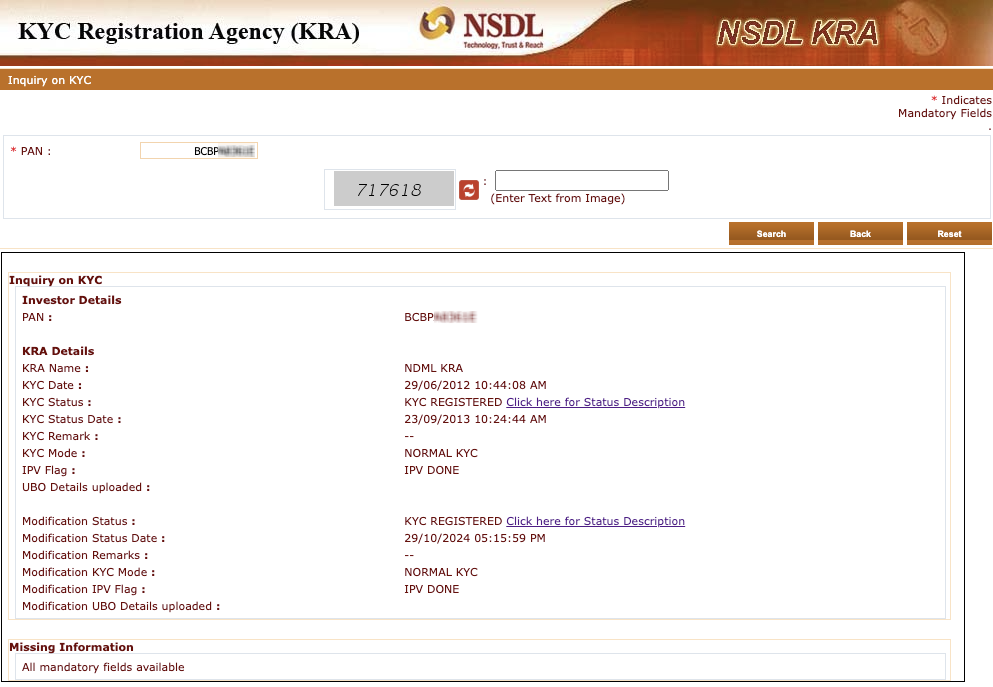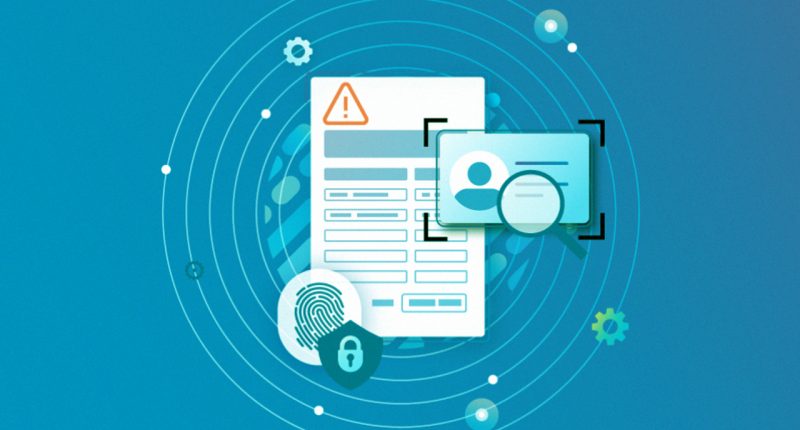Wondering how to check KYC status for mutual funds because you are struggling to invest in mutual funds? Don’t let incomplete KYC hold you back from growing your wealth. Let’s help you sort it out today!
Investing in mutual funds is one of the smartest ways to grow your wealth, but before you dive in, there’s an essential step to take—completing your Know Your Customer (KYC) process. KYC compliance is mandatory for all mutual fund investors, as it helps financial institutions verify your identity and prevent fraud.
But what happens if you’re unsure about your KYC status? An incomplete or pending KYC can delay your investments and complicate your financial plans. In this guide, we’ll simplify the process of checking your KYC status, so you can focus on what matters—making the right investment decisions.
How to Check KYC Status
KYC Registration Agencies (KRA) are responsible for registering and maintaining the KYC details of the investors. If you’re unsure whether your KYC is complete, you can easily check KYC status for mutual funds through online platforms. Investors are required to visit their KRA website listed below and follow the on-screen instructions to validate their details

Understanding the KYC Status
When you check your KYC status on the KRA portal It can show one of the below statuses for your PAN card number.
- KYC Validated – Your KYC is validated and you can do any transaction in any mutual fund, anytime.
- KYC Registered – The record is registered with KRA as per the Uniform Know Your Client (KYC) Requirements. You can continue making transactions (like Purchases, Redemptions, Switches, SIPs, etc.) in all your existing Mutual Fund investments without any hassle. Only if you want to invest in a mutual fund where you don’t have any investment already, you will have to do your KYC once again.
- KYC On Hold – KYC can be on hold due to discrepancies in KYC documents. In most cases, it could be that mobile or email is not validated / PAN is not linked with Aadhaar / Deficiency in the KYC documents, etc.
- KYC Rejected – KRA can reject KYC due to discrepancies in KYC documents.
How to Resolve KYC On Hold Status?
If your KYC status is On Hold, various reasons may account for it.
- Use of non-officially valid documents (OVDs): If you submitted documents like utility bills instead of officially valid documents, your KYC might be delayed.
- Aadhaar and PAN not linked: If you haven’t linked your Aadhaar and PAN, you can’t complete the KYC process.
- Outdated contact details: If your contact information is outdated, you might need to update it to proceed with the KYC verification.
In each of these cases, you need to take corrective action to resolve the issues and complete your KYC process. Investors can update their KYC online and offline through most of these KRAs.
KYC Update – Online Method
With advancements in online services, it has become easier than ever to check KYC status for mutual funds from the comfort of your home. Before you begin, confirm that your mobile number is linked to your Aadhaar to proceed with the online KYC verification process on your KRA website.
However, consider a few important points:
- Issues with non-valid documents: Issues can arise if you initially provided non-officially valid documents (OVDs), such as utility bills, making the online method ineffective.
- Physical KYC submission: If the online method fails due to non-valid OVDs, complete a physical KYC process. In this case, personally submit your KYC documents to your service provider or fund house.
Therefore, ensure you possess the correct documents and that you have registered your mobile number with Aadhaar. Moreover, switch to the physical KYC method in case of any problems.
KYC Update – Offline Method
Alternatively, if you prefer the offline method, physically submit your KYC form along with a copy of your Aadhaar card to any fund house or at the KRA branches. You will also required to fill and submit a KYC form with your passport size photo and signature in it. This means you can complete your KYC process without relying on online platforms.

KYC Requirements For Non-Resident Indians (NRI)
Can NRIs invest in Indian mutual funds without a valid KYC? No, but they have some relaxation in the KYC compliance. NRIs are expected to complete the KYC process using Aadhaar.
However, since most NRIs might not possess an Aadhaar card, one needs to take alternative measures. Moreover, if the investor does not complete the KYC using Aadhaar, the status will be KYC Registered. So, new fund houses will require re-KYC for any future dealings.
Acceptable Officially Valid Documents (OVDs)
NRIs can provide a passport, PIO Card, or OCI Card as acceptable Officially Valid Documents (OVDs). However, they must provide proof of an overseas address. Documents from foreign government departments or a letter from a foreign embassy or mission in India serve as acceptable address proof if the OVD lacks address details. Additionally, translate any address proof in a foreign language into English.
Issues With Phone Number Validation
Numerous NRIs face complications with mobile number validation. Those who have provided an Indian mobile number may find it invalidated, especially if the number is no longer in use. So, you should update your KYC.
Existing NRIs With Foreign Numbers
Existing NRIs with foreign numbers are exempt from the mobile validation process. However, ensure that your PAN reflects your NRI status. Furthermore, if you lack a phone number, you can continue investing with PAN. But it must reflect your NRI status.
Final Words
It is crucial to verify and maintain your KYC status for hassle-free investment experiences in mutual funds. Because it ensures regulatory compliance and enhances security. So understand the steps of how to check the KYC status of mutual funds. Remember validating your KYC is not just a formality; it is a necessity of responsible investing.









